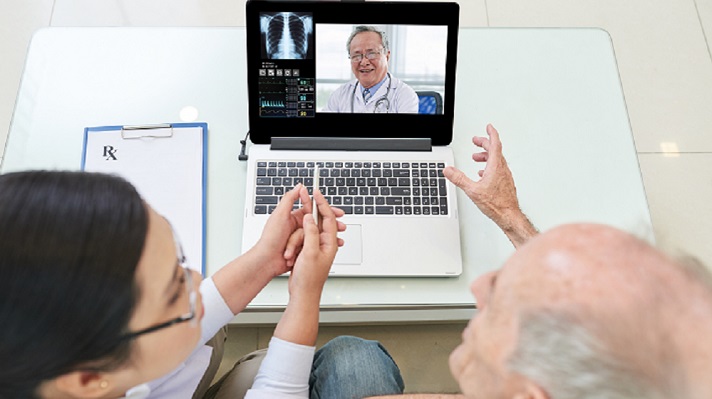In the ever-evolving landscape of the healthcare industry, the seamless integration of technology and human expertise has become a hallmark of success. Revenue Cycle Management software, a powerful technological solution, has emerged as a game-changer in modern healthcare, significantly impacting the efficiency and accuracy of medical coding services. In this comprehensive 1400-word article, we will delve into the pivotal role of RCM software in modern medical coding services, elucidating how this synergy benefits healthcare organizations, ensures compliance, and optimizes revenue.
Deciphering the Dynamic Duo: RCM Software and Medical Coding Services
Before exploring the significance of RCM software in modern medical coding services, it’s essential to understand the complementary roles they play in the healthcare ecosystem.
- RCM Software: Revenue Cycle Management software is designed to streamline and optimize the financial aspects of healthcare, from patient registration to the collection of payments. It encompasses tasks like appointment scheduling, insurance verification, claims submission, payment posting, and claim follow-up.
- Medical Coding Services: Medical coders are responsible for translating healthcare services and diagnoses into standardized codes. These codes are crucial for billing, insurance claims, and ensuring compliance with healthcare regulations.
The Symbiosis
RCM software and medical coding services are not isolated components of healthcare; they work in tandem to enhance the entire revenue cycle. The synergy between them yields several benefits that modern healthcare organizations cannot afford to overlook.
The Role of RCM Software in Modern Medical Coding Services
-
Efficient Claims Processing
One of the primary functions of RCM software is to facilitate the efficient processing of insurance claims. This involves the creation and submission of claims to insurance providers, complete with accurate coding and documentation. RCM software automates many of these tasks, reducing the likelihood of errors and accelerating the reimbursement process.
-
Revenue Optimization
RCM software helps healthcare providers identify and address potential revenue leakage. By tracking the entire revenue cycle, from patient registration to payment collection, it can pinpoint areas where revenue may be lost due to errors or inefficiencies.
-
Streamlined Workflow
RCM software simplifies the workflow for healthcare staff. It automates routine tasks, such as appointment scheduling and insurance verification, allowing healthcare providers to focus on patient care rather than administrative duties.
-
Enhanced Patient Experience
An efficient RCM process can lead to a better patient experience. Patients benefit from accurate billing, clear communication regarding their financial responsibility, and smoother payment processes.
-
Compliance and Reporting
RCM software also helps healthcare organizations maintain compliance with evolving healthcare regulations. It generates reports that provide insights into the financial health of the practice and ensures adherence to industry standards.
Challenges and Solutions in Modern Medical Coding Services
While RCM software offers significant advantages, modern medical coding services also face specific challenges and require innovative solutions.
-
Evolving Regulations
The healthcare industry is subject to ongoing regulatory changes. Medical coders must stay updated with the latest coding guidelines to maintain compliance and efficiency. RCM software can assist by integrating updates and alerts into the coding process, helping coders stay current.
-
Interoperability
As healthcare IT systems evolve, the need for interoperability becomes more pressing. Medical coders require access to a range of electronic health records and databases, and RCM software can facilitate seamless data exchange between healthcare providers, payers, and coders.
-
The Role of Technology
Artificial intelligence (AI) and machine learning are poised to transform the world of medical coding services. These technologies have the potential to automate routine coding tasks, speeding up the coding process and reducing the risk of errors. Integrating AI-powered coding assistance into RCM software can further enhance the efficiency and accuracy of medical coding services.
The Future Possibilities
The integration of RCM software and modern medical coding services opens doors to exciting possibilities in healthcare. Here are a few future trends to watch out for:
-
Advanced Analytics and Reporting
RCM software is becoming increasingly sophisticated in its ability to generate insightful reports. This trend is likely to continue, with RCM software providing healthcare organizations with actionable data for optimizing revenue, improving patient experience, and ensuring compliance.
-
AI and Machine Learning Integration
The adoption of AI and machine learning in RCM software is set to grow. Machine learning algorithms can identify patterns in claims denials and assist medical coders in assigning accurate codes. AI can also provide real-time feedback to coders, improving coding accuracy and speed.
-
Telehealth Integration
As telehealth becomes a permanent fixture in healthcare, RCM software will need to adapt to the unique billing and coding requirements of virtual care. Integration with telehealth platforms will be crucial in ensuring accurate billing and coding for remote consultations.
-
Enhanced Patient Experience
Modern RCM software can help healthcare organizations enhance the patient experience by providing transparent billing and payment options. This trend is likely to continue, with RCM software evolving to offer even more patient-friendly features.
Conclusion
The synergy between RCM software and modern medical coding services is a testament to the transformative potential of technology in healthcare. It streamlines the revenue cycle, enhances efficiency, ensures compliance, and optimizes revenue. As healthcare continues to evolve, the integration of RCM software and medical coding services will remain pivotal in maintaining the financial health of healthcare organizations.
The future holds exciting possibilities, with advanced analytics, AI and machine learning, telehealth integration, and improved patient experiences on the horizon. This dynamic duo of technology and human expertise is shaping the healthcare landscape, ensuring that healthcare providers can focus on delivering high-quality patient care while efficiently managing their financial operations. The role of RCM software in modern medical coding services is indeed a compelling narrative of progress and promise in the healthcare industry.
Follow Techdee for more!
